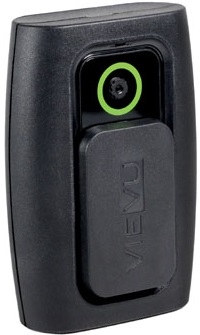
Several police departments around the nation are already using body-worn cameras, and now you can add Seattle’s to that list.
The SPD will soon launch a pilot program that will feature 12 East Precinct officers wearing body-worn cameras in an attempt to test and assess the new devices.
“The Seattle Police Department has been working toward this moment for more than a year,” the department wrote in a FAQ page. “Footage from the cameras can be used as evidence against suspects, and help monitor the behavior of officers. Research has found that departments using such cameras have experienced a decline in assaults on officers, as well as the need for officers to use force.”
The SPD will spend up to six months testing cameras made by TASER, as well as devices made by Seattle-based Vievu.
According to a pending body-worn camera policy, officers are instructed to turn on the camera for certain police activity and notify subjects that they’re being recorded. However, for residences and other private areas, they’ll need to ask for consent.
“Officers won’t record public protests, or in places where an expectation of privacy exists, such as restrooms, jails, or hospitals — unless there’s reasonable suspicion a crime is being committed or the recording of the location is material to a criminal investigation,” the FAQ notes.

The department worked with the ACLU and Community Police Commission to develop the body-worn camera policies. However, the ACLU told KING5 that it was concerned that officers can turn the cameras on and off. Jared Friend, technology and liberty director for the ACLU, told KING5 that “our position is that the cameras should always be on.”
The SPD actually wanted to launch the pilot program earlier this year, but delayed it back in May due to concerns with a Washington state law that prohibits recording conversations in a private residence without permission, except for emergency responders.
Last month, Washington State Attorney General Bob Ferguson said that police officers with body-worn cameras do not need consent from citizens to record their conversations and actions — even inside of homes. In his opinion, Ferguson said that since interactions with on-duty police are considered public, they are exempt from the state’s privacy laws and an officer would not need to stop recording.

Another privacy issue revolves around how to handle the recorded video from the body-worn cameras. The vision for the SPD is to eventually upload footage to the Internet that would be accessible to the public, but the SPD is still figuring out how exactly it could efficiently redact or blur out images that shouldn’t be available to anyone based on existing laws.
That’s why the SPD is holding its first-ever hackathon on Friday and is asking developers to create software that quickly redacts faces, audio, and/or license plates from millions of videos on its servers in order to stay within Washington’s privacy laws.
The hackathon is taking place just a few weeks after an anonymous computer programmer submitted a massive series of public records requests, including one for all of the videos produced by patrol car cameras. The SPD made a deal with the man to publicly release videos produced by dashboard- and body-mounted cameras.
Several police departments have already implemented the use of body-worn cameras made by companies like Vievu, while the Obama administration recently noted its support for the devices. On our GeekWire radio show, we recently discussed police using the new technology with Evidence.com General Manager Marcus Womack, who explained how his company’s cloud-based system and body cameras create accountability for interactions between police officers and citizens.


